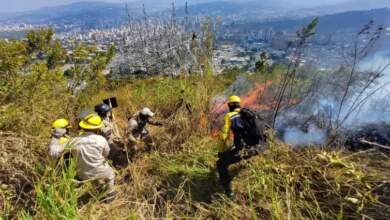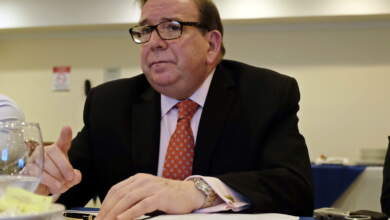Freedom of Expression
The right to freedom of expression is fundamental and essential in the struggle for the respect and promotion of human rights. Not being able to freely express your opinion, denounce injustices and demand changes condemns the human being to oppression. A free and independent press may be directly responsible for the mitigation of corruption, improving the economy and the market as well as the rights and political services received by the citizens. This is why the right to freedom of expression is always threatened by repressive governments that refuse to allow changes, as well by people who insist on imposing their ideologies over everyone else’s opinions. A free press is capable of keeping corruption in check by watching over and reporting on the activities of government and business. Unfortunately, in countries such as Venezuela, journalists are not always allowed to complete their journalistic duties, since by simply doing their jobs, they may find themselves in harm’s way. Despite the pro-Chavez movement insisting that the Right to Freedom of Expression does exist in Venezuela, the Right of the citizens to an opportune, balanced, undistorted information has been seriously wounded, particularly in regards to the biased informative contents on the part of the communications media administered by the Government. The State has progressively created a great number of communications media which sole purpose –apart from reinforcing its communicational platform to configure a communicational policy that will benefit the regime- is to directly confront the privately-owned media, which in their majority have assumed an oppositionist position to the process led by Hugo Chavez. According to UCAB and UCV Communications professor, Marcelino Bisbal, Conatel highlights in its website their control of over 60 newspapers, 6 TV stations and 159 communitarian media and radio circuits; “this phenomenon has never before been heard of in the history of journalism and communications in Venezuela”. This clearly shows how the Government has built a communicational network that is neither at the service of the State nor of the Government, but instead it is at the exclusive service of the Chavez’s autocratic ideology, which emphasizes propaganda and political proselytism, while straying from its primary function which is to inform in an opportune, impartial and true manner. And in its zeal to take over the ground earned by the private media in order to crush them, the regime approved the infamous Radio and Television Social Responsibility Law (a.k.a. The Muzzle Law), which is nothing more than a law drafted to curtail the freedom of expression of the Venezuelan people. According to journalist and parliamentarian, Alberto Jordán Hernández, Hugo Chávez’s government, is achieving with this Law –which is nothing more than a Contents Law- what their violent methods were unable to do, to force the media to self censorship, since it establishes 72 different causes the regime can base their reasons to close down the television stations. To the Contents Law one must add the recently approved Penal Code reform, which sole purpose is to allow the regime to “lawfully” repress, submit, control and neutralize the communications media; task that has proven very hard for the revolutionary process to achieve. Chavez had the gall to congratulate media workers during the Journalists Day acts and state that he feels “humbly proud to say that his administration has never persecuted journalists or any private communications media”. So many have been the aggressions against the media and radio, written press and television workers, by hordes loyal to the process since Chavez assumed power; but in the last three years –in which the regime has deepened the revolutionary process- over 50 legal causes have been filed against journalists nationwide, of which one can highlight those against journalists Patricia Poleo and Ibéyise Pacheco, who have been charged and condemned (although they have not been imprisoned), Marianella Salazar has been sued by Executive Vice-President, Jose Vicente Rangel and charged by the Prosecutor’s Office, as well as Miguel Salazar, who despite of favoring the government he has published certain truths that have irritated the regime. If this is not persecuting journalists, what is it? Working as a news communicator in Venezuela has become a profession almost impossible to carry out, since not only has the government (on occasions) attached their working tools, but those not working for government-run stations are not given access to important official information. All Venezuelans must partake in the fight for freedom of expression, since it is based on respecting what everyone else wants to say, while respecting our own freedom of speech. Improving the public’s conscience over the importance of the freedom of expression is essential so we can live in democracy.
(*): (%=Link(«http://rev.com.ve/default.asp»,»Venezuelan Economic Review,»)%) On Line. June 28, 2005. (%=Link(«http://www.rev.com.ve»,»http://www.rev.com.ve»)%)








